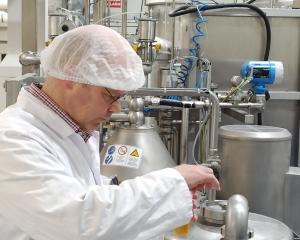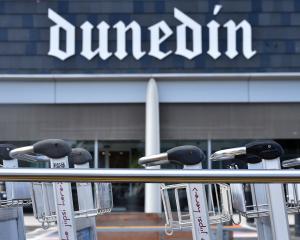Petrobas officials made a last-ditch attempt to save their Raukumara Basin exploration project by asking for time to seek a financial partner.
The Brazilian oil giant last week relinquished its five-year permit to explore for oil and gas in deep waters off the East Cape, prompting jubilation from environmentalists and disappointment from the business sector.
However, documents released to Green Party MP Gareth Hughes under the Official Information Act reveal that in August the company applied for an extension to its work programme "in order to make a more informed decision" about whether it would complete it or surrender the permit.
The reason for the application was that it was "in the process of identifying a potential partner to share the investments related to the work programme", said Petrobras lawyer Marcos Jose de Souza.
The company had already carried out 2D seismic surveying over more than 3000 square kilometres of the basin - priced at US$5 million - some of it interrupted by protesters from Greenpeace and East Cape iwi Te Whanau a Apanui.
Petrobras believed that "the possibility of sharing the costs of the next phase would increase the chances of approval of the of the 3D seismic survey by Petrobras upper management", the application said.
But the company's decision to surrender its permit indicated that it had not managed to find such a partner, said Mr Hughes, the Green Party energy spokesman.
"The Government is trying to spin it that Petrobras wanted to focus on its business in Brazil, but Petrobras tried to get an investment partner for the Raukumara Basin and failed," Mr Hughes said.
"Potential business partners would no doubt be aware that Petrobras's risky plans in the basin attracted massive public opposition from Te Whanau a Apanui and the public.
"We can create a smart, green economy by moving away from risky extractive activities like deep-sea oil drilling, towards renewable energy and clean-tech jobs."
On the other hand, Petrobras's desire to hold on to its permit showed that the Raukumara Basin remained a viable interest for the industry, said Petroleum Exploration and Production Association of New Zealand (PEPANZ) chief executive David Robinson.
"The way I would describe it is that if you are the first person to explore somewhere, you go only so far then record your experiences - which is what Petrobras has done," he said.
"They did only a small amount of 2D surveying and I think they saw some encouraging signs there. But they have big reserves in their own coastal waters and, since they have only so much money to spend, they have reduced global expenditure to focus on their own resources."
Regardless of its potential, the waters of the Raukumara Basin will remain undisturbed for some time yet.
There are no areas - onshore or offshore - in this region available in Block Offer 2012 tracts opened up for exploration, for which the successful bidders will be announced next week.
With Petrobras holding its permit when the Government drew up its Block Offer 2013, the new list also did not include any blocks off East Coast shores - though inland blocks were made available.
"When we send out block offers across New Zealand, we take a balanced approach between land and sea, shallow water and deep water, proven and unproven areas, so we are cutting it six ways," said Minister of Energy and Resources Phil Heatley.
That did not mean that in future years the Government would not again be looking at the Raukumara Basin.
"This has always been about exploration work. So if we get in a few exploration wells, then we can have a debate about whether to go for it," Mr Heatley said.
"In future we would like to see much more exploration, both on shore and off shore on the East Cape."
- By Kristine Walsh of the Gisborne Herald












